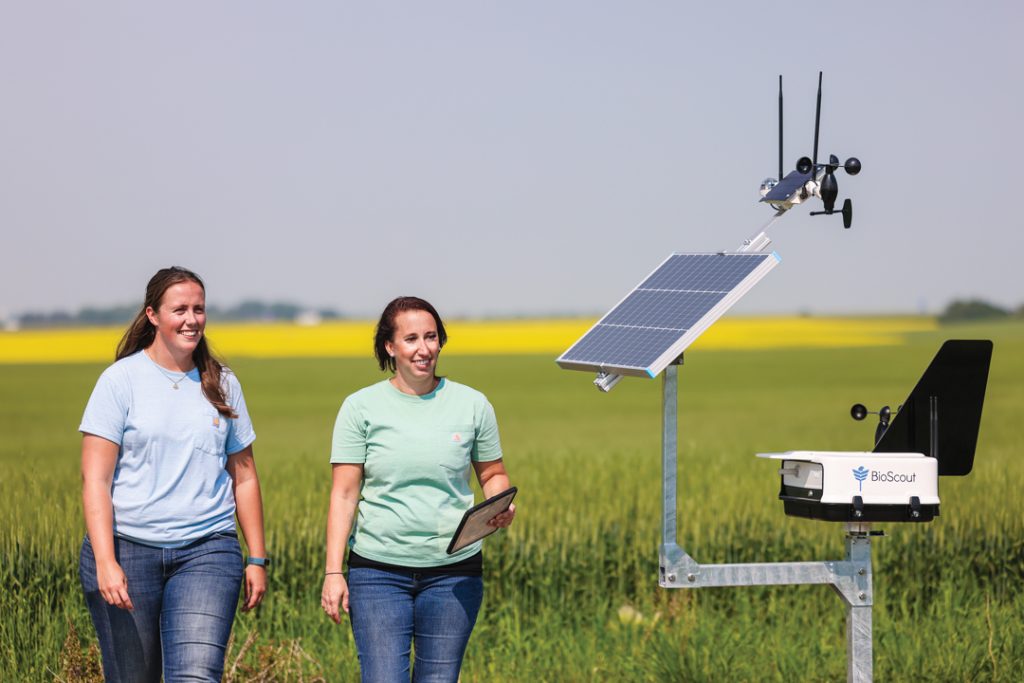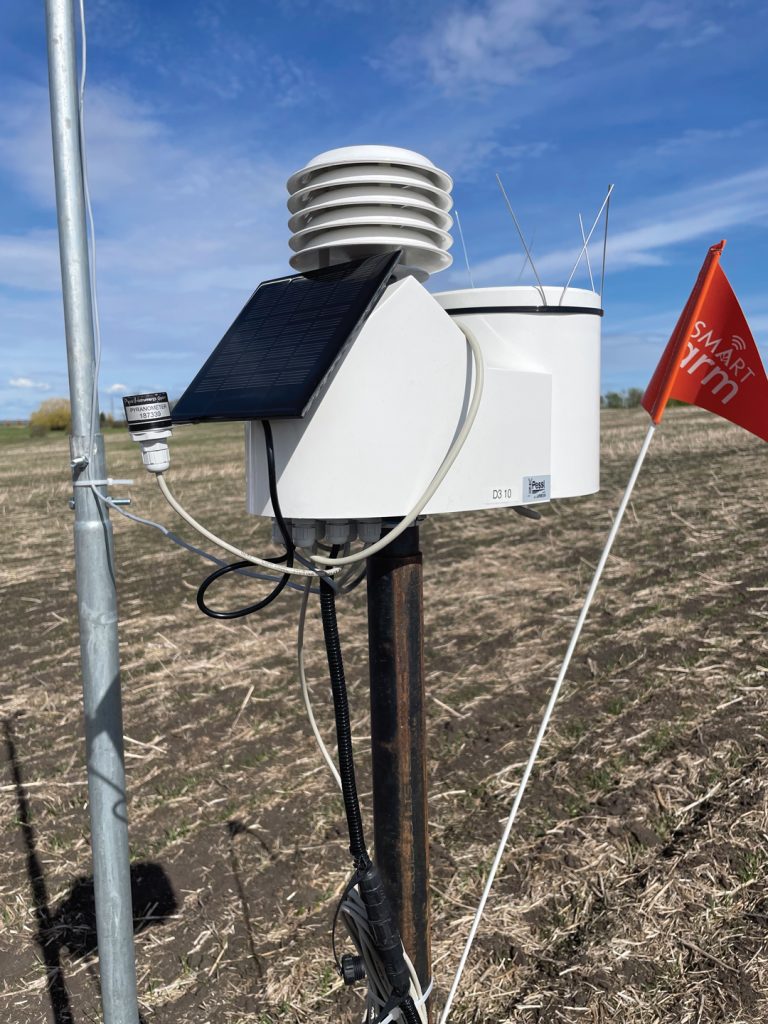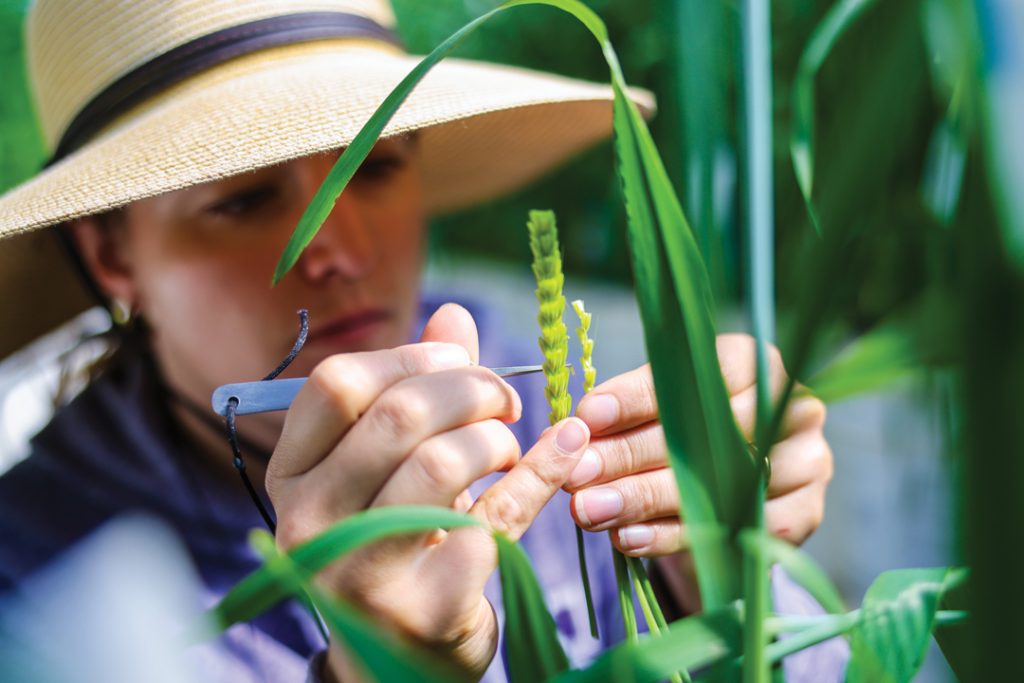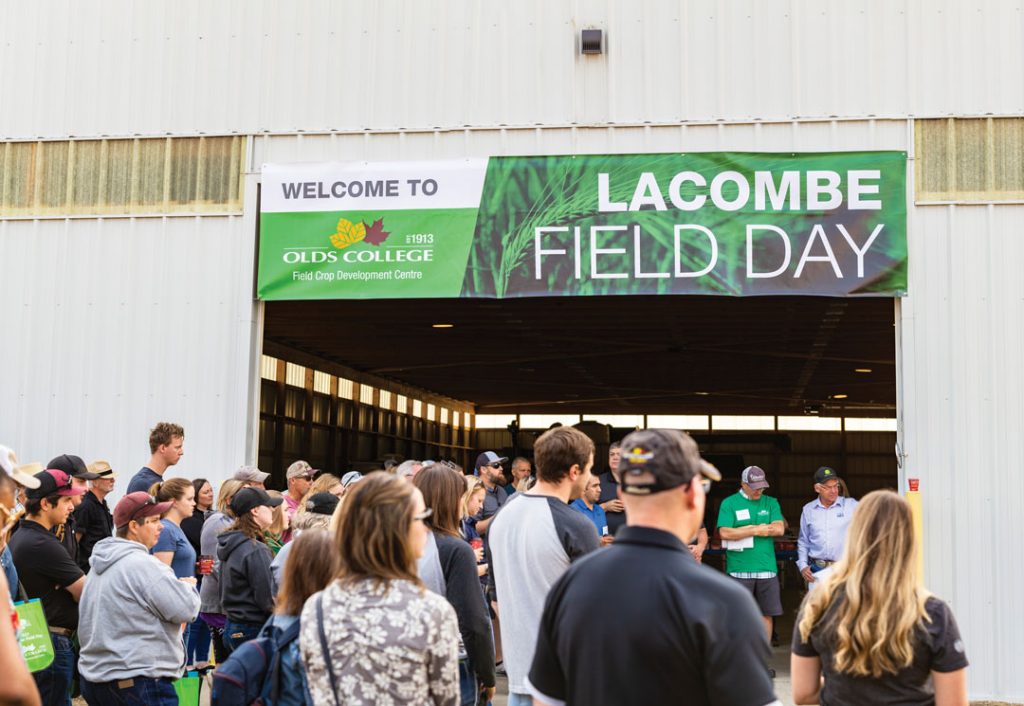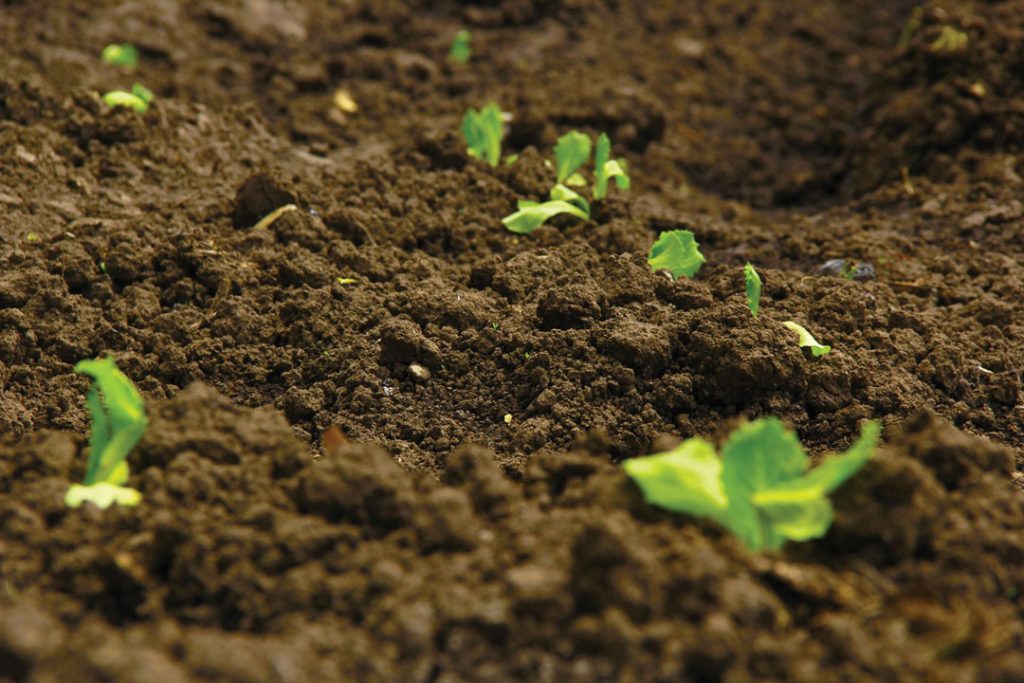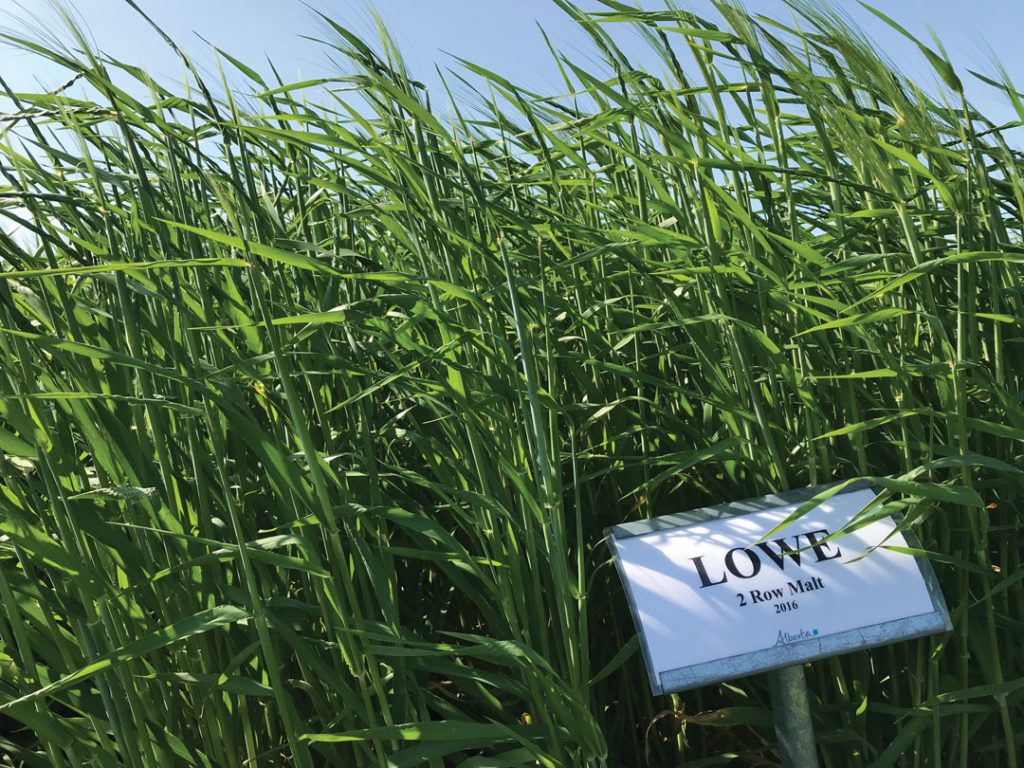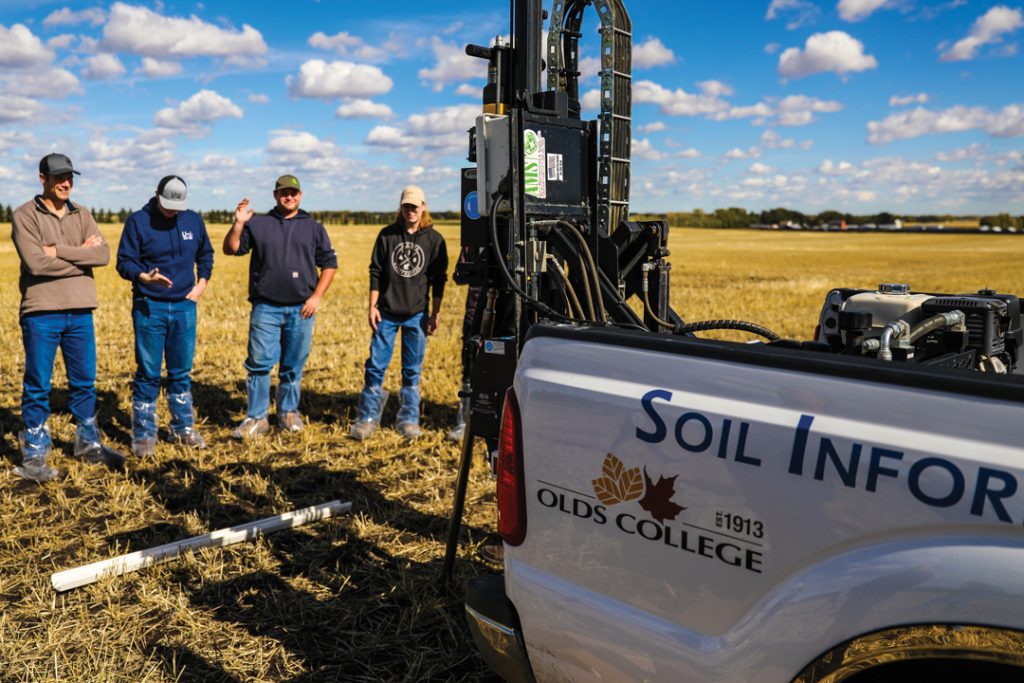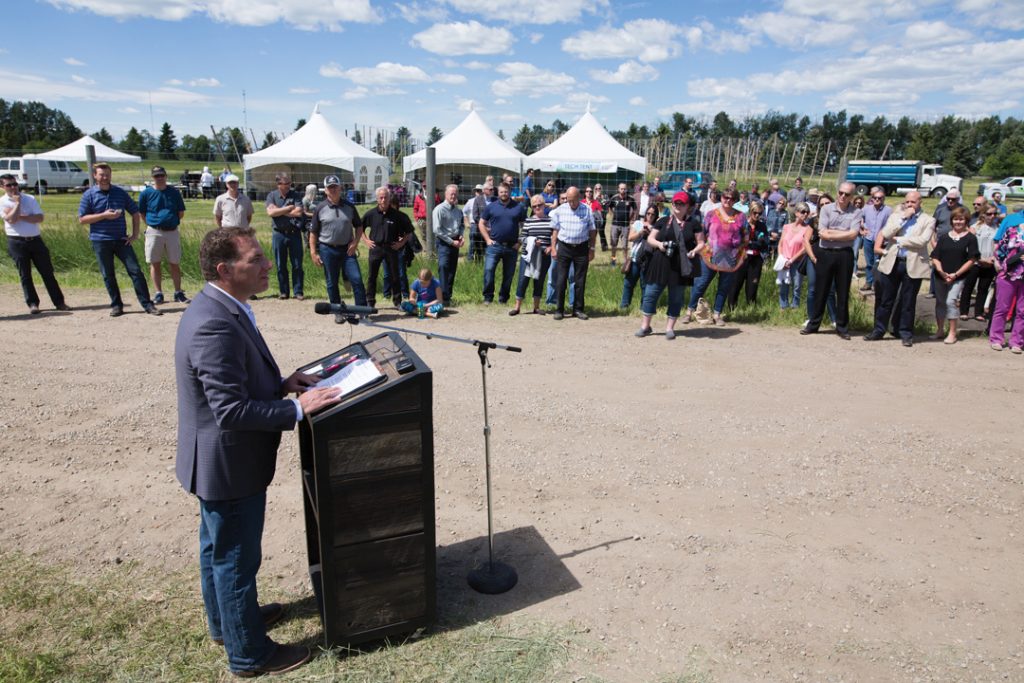BLOWIN’ IN THE WIND
Each year, crop diseases diminish yields in Western Canada and around the globe. To address such perennial threats, Australian company BioScout created its signature product, an agricultural disease detection, spore identification and quantification system. Its purpose is to help farmers manage crop disease by identifying spores prior to the appearance of symptoms on the plants. BioScout has launched active pilot projects around the world to test the unit’s ability to detect diseases in crops such as fruits, vegetables, oilseeds, legumes and cereals.





